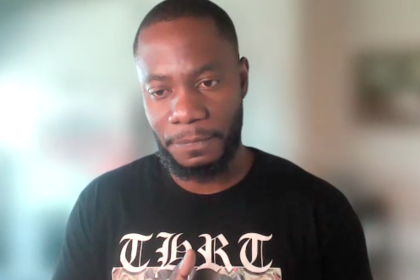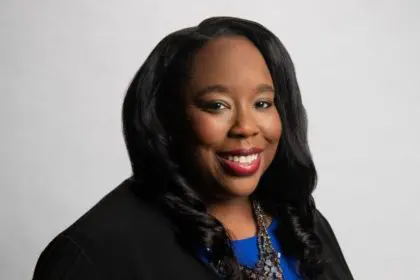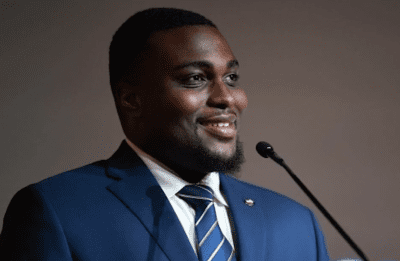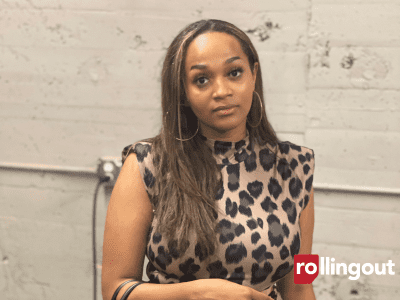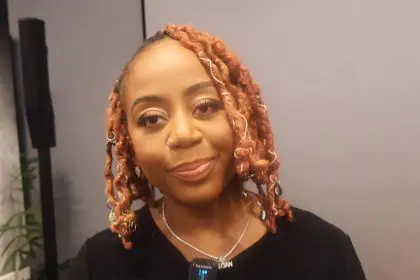
Courtney Anderson had accomplished a lot since she graduated cumma cum laude from the University of Pittsburgh in 2003. She went on to Harvard Law School three years later, then obtained her LL.M with distinction from Georgetown University Law Center. Now, Anderson is an assistant professor of law at George State University College of Law, where she continues to improve as an educator.
Anderson teaches Law and Social Welfare and Property, with legal experience in transactional law and community and economic development. Her research and interests revolve around low-income and minority issues and health equity. She also has a life outside of teaching where she is a champion for various social issues, including LGBTQ issues.
Rolling out asked Anderson to elaborate on her efforts and aspects of her character that keep her on the path of success.
Beyond the scope of your work, what causes do you support and participate in?
In addition to be on faculty at Georgia State University College of Law, I own a fitness studio in the Midtown neighborhood of Atlanta that hosts charity rides and events benefiting cancer research and LGBTQ tolerance. We are fundraising partners with the Leukemia and Lymphoma Society, and will host their 2015 inaugural training event. We are also planning a charity ride for Atlanta Pride and a health expo event for Atlanta Black Pride. I also sit on the Supplemental Board for the Georgia Law Center for the Homeless, which provides legal and social services for homeless individuals
Being agile and having the ability to adapt has …
Allowed me to adjust my teaching style to fit the needs and diverse learning styles of my students.
Expressing gratitude to those around me …
Reminds me to be thankful for what I have and how important it is to acknowledge the numerous people who have provided you with support and guidance in your personal and professional journey. It’s very easy to become accustomed to friends and family members supporting you. Taking time to acknowledge small things that those in my network do, the majority of which they do not even consider to be favors, not only communicates my recognition of their kindness, but also allows me to internalize the generosity I’ve received.
Please describe your professional achievements. What pinnacles of success have you reached?
After working at a law firm for four years, I was very proud to accept a fellowship at the Harrison Institute for Affordable Housing and Community Development at Georgetown University Law Center. Working with the director, Michael Diamond, who conceptualized the first such clinic in the United States was a true honor. This fellowship also prepared me for my current assistant professor position at Georgia State University College of Law. My colleagues are the nation’s leaders in scholarship and teaching, and have supported me in the classroom and in research. Attaining pinnacles of success requires that you work with the best in your field, and hard work has allowed me to do this.
Learning to let go of trying to be perfect has helped me …
To be more empathetic and open-minded. Striving for perfection is admirable, but accepting nothing less than perfect in every conceivable situation places an inordinate amount of stress on you, and on those with whom you associate. It creates false barometers that breeds rigidity. Accepting imperfection means accepting alternative courses of action, and modifications that can open additional opportunities.
How have you used this in dealing with clients, prospects and associates?
The more success you achieve, the more tempting it is to second-guess yourself. I’ve found that achieving goals increases the fear that they can be taken away from you. Once you trust your intuition for your own choices, you begin to trust your relationships with others. Deciding who to invite in to your professional network and with whom to maintain working relationships requires more than a once-over of a resume. It’s important to pick up on nonverbal cues and intangible aspects of the energy you receive and give to others. Trusting yourself and your intuition is the foundation for building this skill.
Without passion …
Without passion there is no progress. No matter how hard you work, you cannot develop holistically in various aspects of your life if you simply go through the motions without truly being fulfilled. An empty professional or personal life negates the technical aspect of any job, regardless of the standard milestones that are met.





